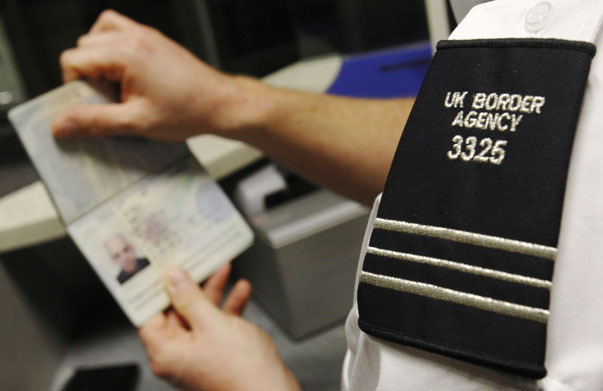The background
David Cameron has announced a new law to stop would-be British jihadis travelling abroad by confiscating their passports.
The prime minister spoke as the terrorist threat to the UK was raised from substantial to severe, against a background of rising Islamic extremism in Iraq and Syria.
He said new powers to be announced on Monday will include “further steps to stop people travelling, with new legislation that will make it easier to take people’s passports away”.
Some commentators immediately expressed confusion, noting that the home secretary already has the power to seize passports of terror suspects.
What powers does the government have to stop terror suspects travelling and do we need a change in the law?
The analysis
It is well-known that the government already has the power to prevent Britons from travelling abroad in certain circumstances.
These fall under royal prerogative powers – customary authority said to reside with the monarch, but which in practice lets the government of the day act according to its own discretion without having to seek the consent of parliament.
Last year the home secretary, Theresa May, published a written ministerial statement on her authority to confiscate people’s passports.
The position is that British citizens do not have a statutory right to be issued a passport. The decision to issue, refuse or withdraw the document is at the home secretary’s discretion.
The new Anti-social Behaviour, Crime and Policing Act gives police, customs and immigration officials extra powers to seize passports they believe have been cancelled by the home secretary under royal prerogative powers.
Passports can be taken away from people when an arrest warrant or court order has been issued, in cases of mental illness and in certain other cases.
And a passport can be withdrawn from:
Ms May’s statement says that the decision to refuse or withdraw a passport in the public interest must be “necessary and proportionate” and “will be used only sparingly”.
It adds: “Passport facilities may be refused to or withdrawn from British nationals who may seek to harm the UK or its allies by travelling on a British passport to, for example, engage in terrorism-related activity or other serious or organised criminal activity.
“This may include individuals who seek to engage in fighting, extremist activity or terrorist training outside the United Kingdom, for example, and then return to the UK with enhanced capabilities that they then use to conduct an attack on UK soil.”
That would appear to cover British terror suspects fighting in Syria and Iraq. So why the need for legislation?
The government has not set out its thinking in public, but our understanding is that there is a feeling of discomfort about the increasingly frequent use of a royal prerogative power that is supposed to be used “sparingly”.
Government sources have told us that 23 passports have been withdrawn in 15 months, which represents a massive increase in the use of this power (it was reportedly only used 16 times between 1947 and 1976).
Earlier this year the home affairs committee called the royal prerogative to withdraw passports a “vital tool” in preventing terrorism but called for new oversight measures to be put in place.
The government appears to want to go further than that by setting out the limits of home secretary’s powers in law after a debate in parliament.
This would be in keeping with other recent moves away from the use of royal prerogative powers.
The government technically still has the power to sent British troops into battle using the prerogative, without consulting parliament. But when Tony Blair put the invasion of Iraq to a Commons vote in 2003 a precedent was set which later prime ministers have not overturned.
Does all of this mean that ministers intend to use the power to confiscate passports more widely than ever in the coming months and years?
We may learn more on Monday, when Mr Cameron is due to set out more detail.








